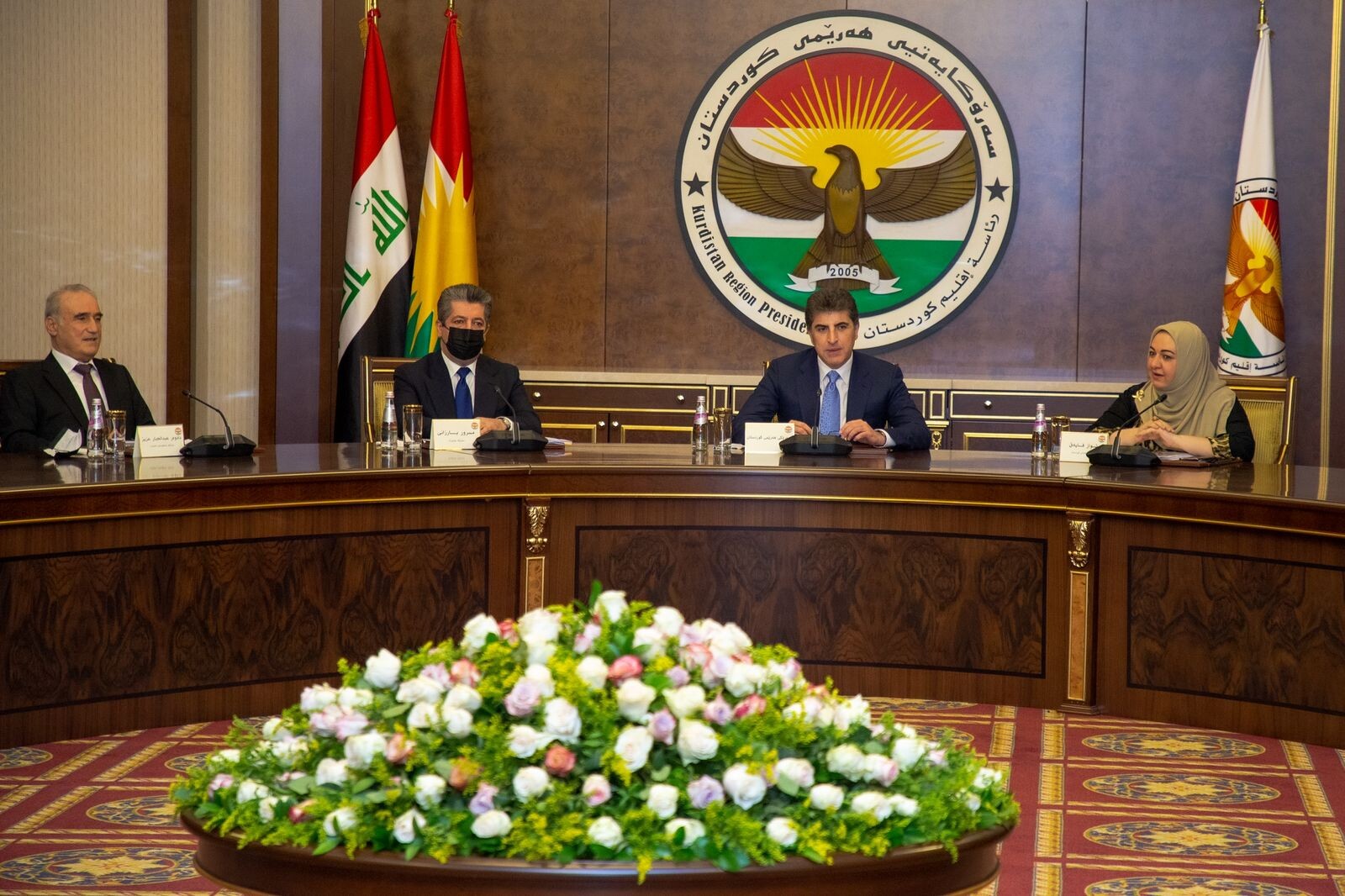
2022-02-28T17:04:23.000000Z
Erbil, Kurdistan Region, February 28, 2022
President Nechirvan Barzani chaired a joint meeting of the Kurdistan Region’s four presidencies, including the Kurdistan Region Presidency, the Kurdistan Regional Parliament, the Kurdistan Regional Government, and the Kurdistan Region’s Judicial Council. The meeting was held at the Kurdistan Region Presidency office in Erbil today.
At the meeting, the ruling of the Iraqi Federal Court, issued on February 15, 2022, regarding the Kurdistan Region’s oil and gas law was discussed. On this issue, the meeting reiterated that the Iraqi Federal Court ruling is unacceptable, emphasizing that the Kurdistan Region will continue to exercise its constitutional rights, and not relinquishing its lawful rights and powers. Furthermore, the Kurdistan Region will exhaust all available legal means in order to safeguard Kurdistan Region’s constitutional powers and rights for the following reasons:
To this end, the Kurdistan Region Presidency will continue to work with all political parties in the Kurdistan Region and Iraq and also with the international community to protect the constitutional rights of the Kurdistan Region. The Kurdistan Regional Parliament will take the necessary legal and constitutional measures, while the Kurdistan Region Judicial Council will continue to work from its constitutional position with the Iraqi judicial centers to defend the constitutionality of the rights of the Kurdistan Region.
Furthermore, the Kurdistan Regional Government remains committed to resolving the problems on the basis of the constitution and will continue constructive dialogues with the federal government. The friends of Iraq and the international community support a solution to the problems on the basis of the constitution.
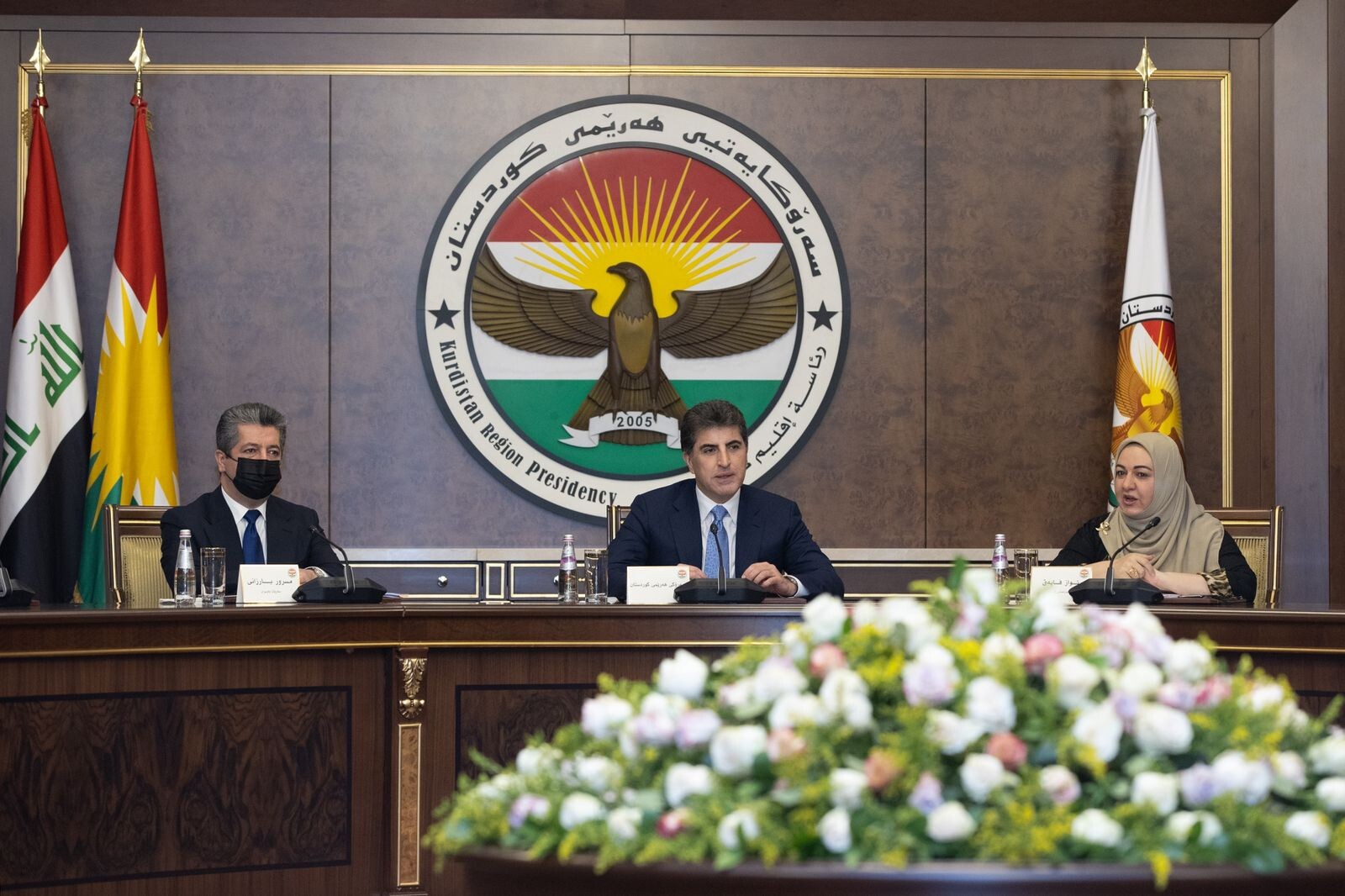
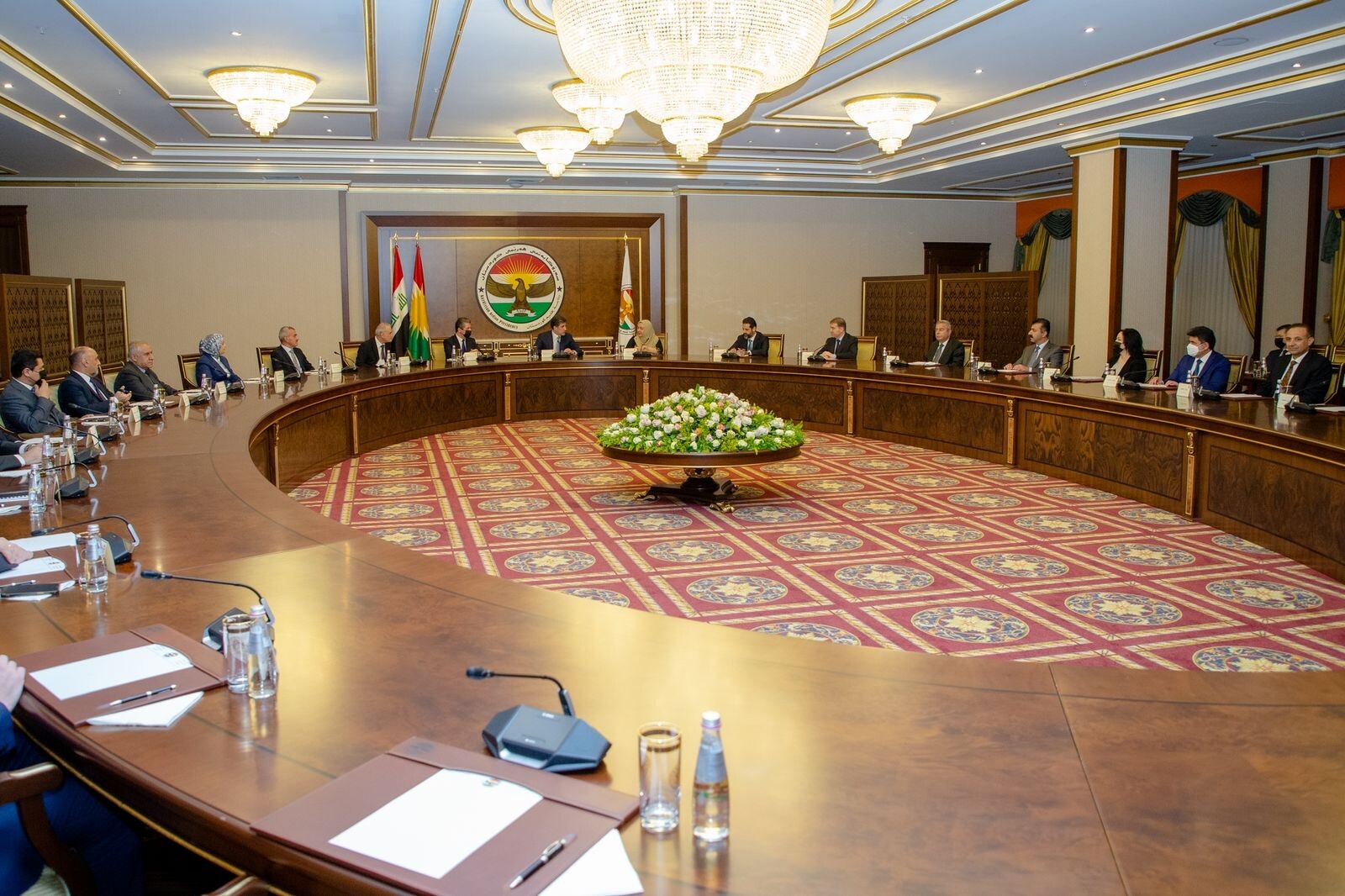
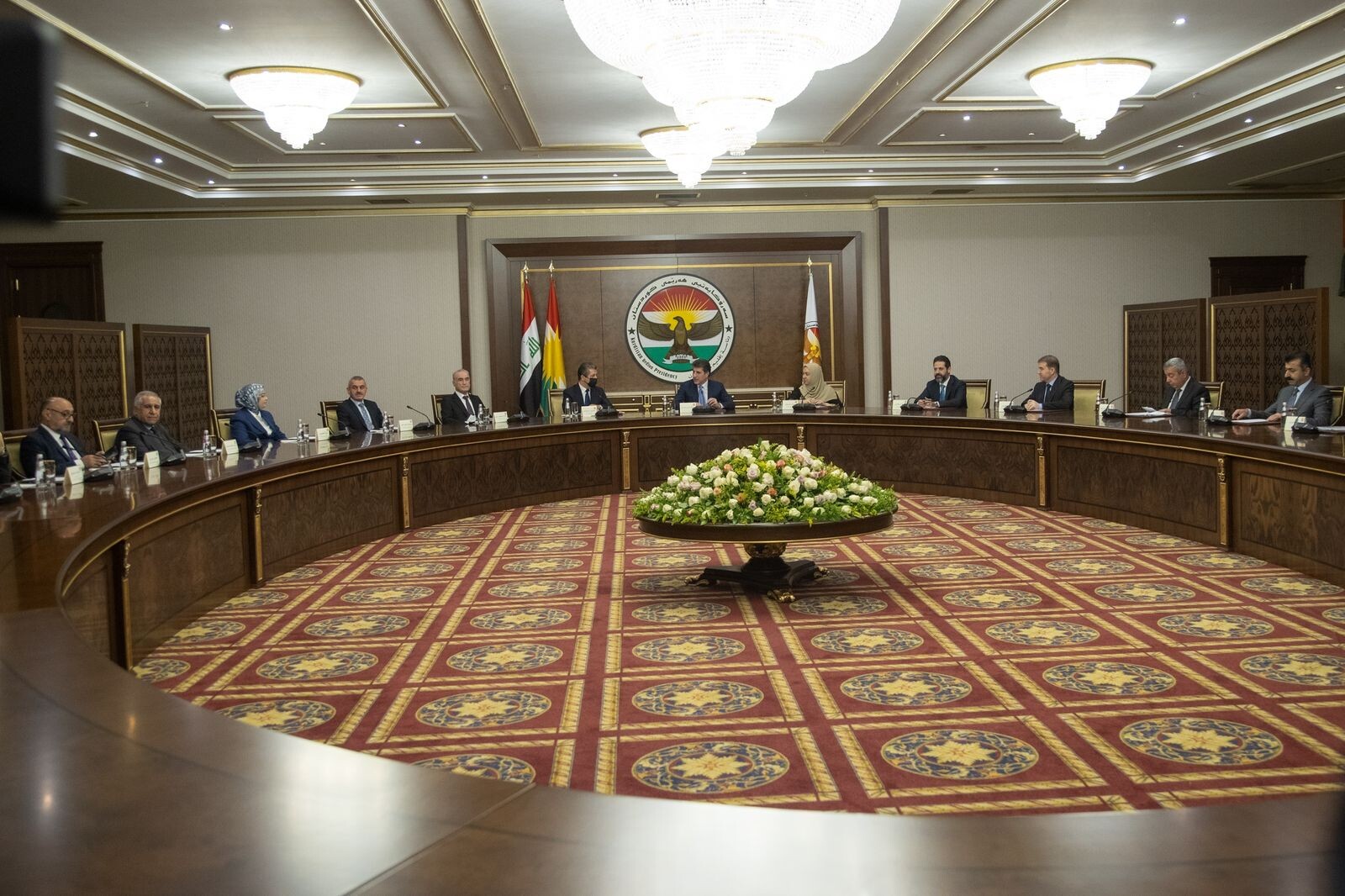
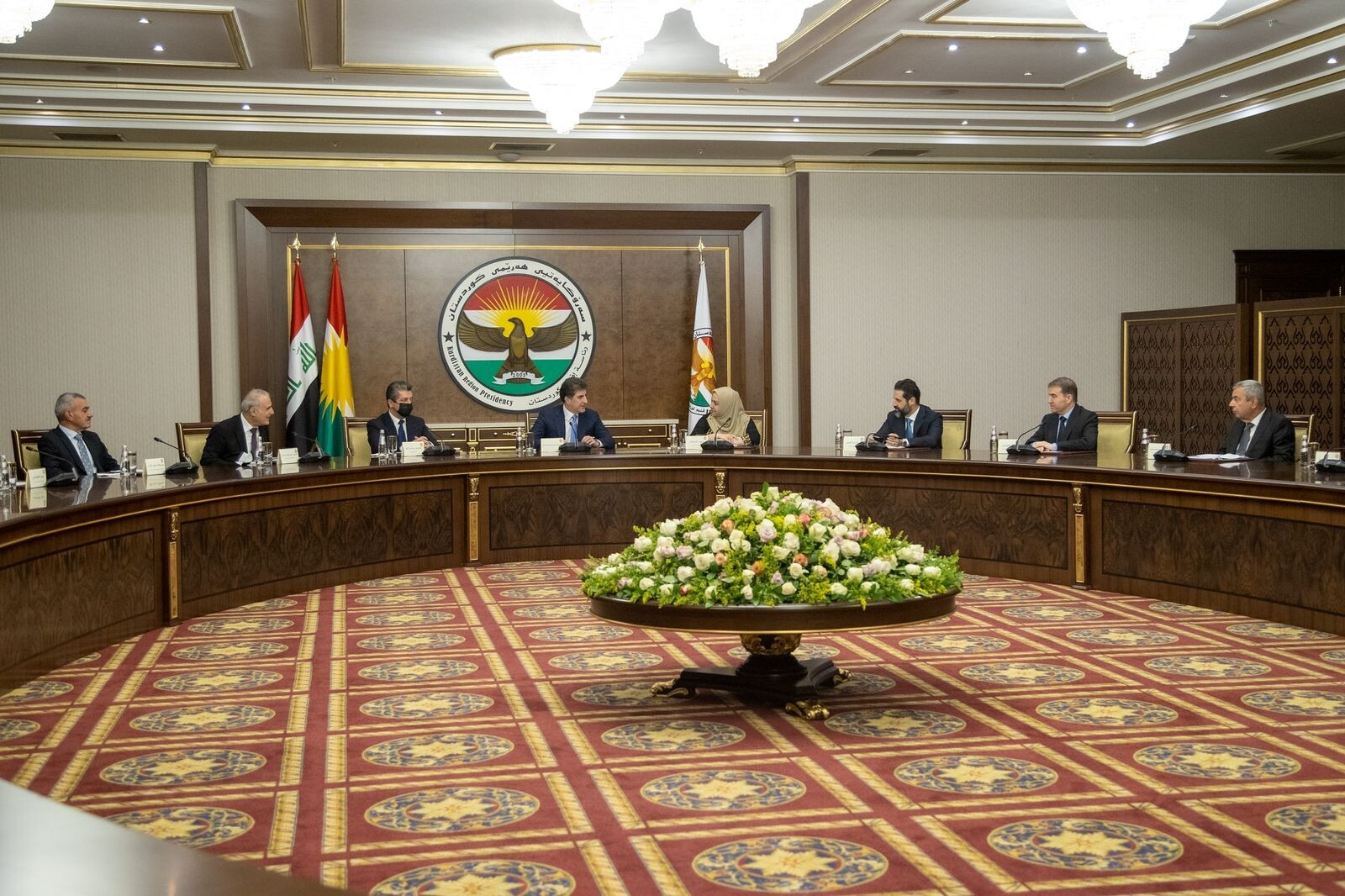
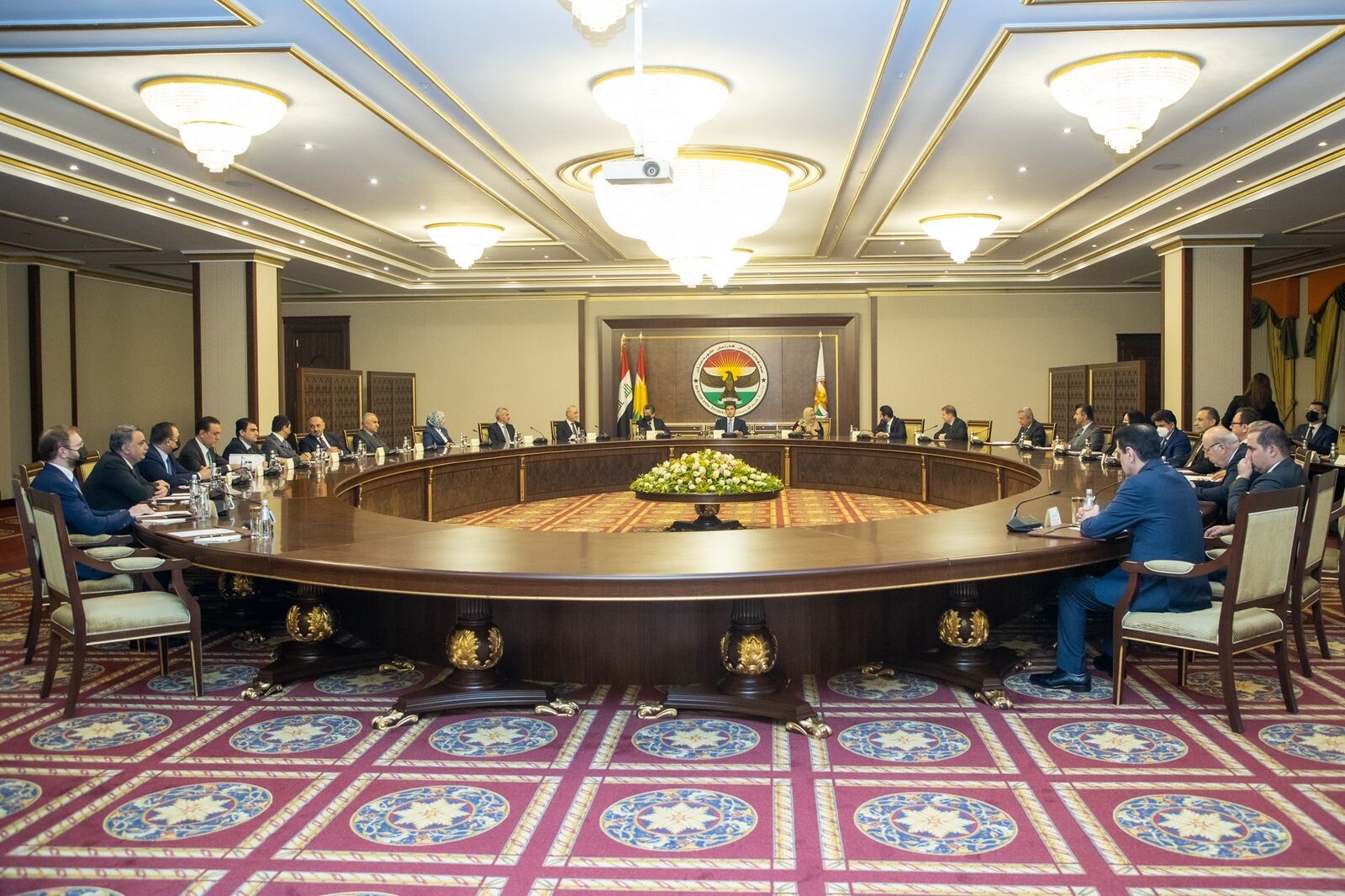
President Nechirvan Barzani chaired a joint meeting of the Kurdistan Region’s four presidencies, including the Kurdistan Region Presidency, the Kurdistan Regional Parliament, the Kurdistan Regional Government, and the Kurdistan Region’s Judicial Council. The meeting was held at the Kurdistan Region Presidency office in Erbil today.
At the meeting, the ruling of the Iraqi Federal Court, issued on February 15, 2022, regarding the Kurdistan Region’s oil and gas law was discussed. On this issue, the meeting reiterated that the Iraqi Federal Court ruling is unacceptable, emphasizing that the Kurdistan Region will continue to exercise its constitutional rights, and not relinquishing its lawful rights and powers. Furthermore, the Kurdistan Region will exhaust all available legal means in order to safeguard Kurdistan Region’s constitutional powers and rights for the following reasons:
- The ruling of the Federal Supreme Court of Iraq is contrary to the true principles, letter and spirit of the federal system as it is a flagrant violation of Kurdistan Region’s constitutional rights and powers.
- The court ruling, indirectly, is an unconstitutional amendment to the constitution, since it has led to stripping the regions of a constitutional power while granting it to the federal authorities, which is inconsistent with the Federal Court’s power, as it is a retreat from the principles of the federal system.
- In the ruling, the court relied on Iraqi laws issued in the years 1976 and 1985, which are centralized laws inconsistent with the principles of the new Iraqi constitution of 2005, which shifted the system of governance in Iraq from the centralized to the federal system, clearly distributing the powers of the regions, the governorates, and the federal authority.
- The Kurdistan Region believes that this ruling, not only undermines the constitution and the federal system, it also fails to be impartial, and is driven by special interests, especially at a time when Iraq is moving through a critical political stage; and while the political parties are engaged in talks to reach an understanding and to find a way to break the political deadlock, this ruling clearly exacerbates the conditions even further.
- We reiterate that the Kurdistan Region’s oil contracts are based on the Kurdistan Region’s oil and gas law and the Article (112) of the Iraqi constitution, while the federal authorities, during the past 17 years, have so far failed to carry out their legal duty of formulating an oil and gas law in Iraq despite the Kurdistan Region’s initiatives in 2007, as the federal government of the time retracted the joint draft of the oil and gas law which had been agreed upon.
- We consider it important that the Federal Supreme Court be formed under a new law in accordance with the provisions of Article (92) of the Constitution and perform its duties in accordance with the constitution. Furthermore, all the constitutional institutions should be formed and guided in accordance with the constitution and guarantee the embodiment of the federal system.
To this end, the Kurdistan Region Presidency will continue to work with all political parties in the Kurdistan Region and Iraq and also with the international community to protect the constitutional rights of the Kurdistan Region. The Kurdistan Regional Parliament will take the necessary legal and constitutional measures, while the Kurdistan Region Judicial Council will continue to work from its constitutional position with the Iraqi judicial centers to defend the constitutionality of the rights of the Kurdistan Region.
Furthermore, the Kurdistan Regional Government remains committed to resolving the problems on the basis of the constitution and will continue constructive dialogues with the federal government. The friends of Iraq and the international community support a solution to the problems on the basis of the constitution.










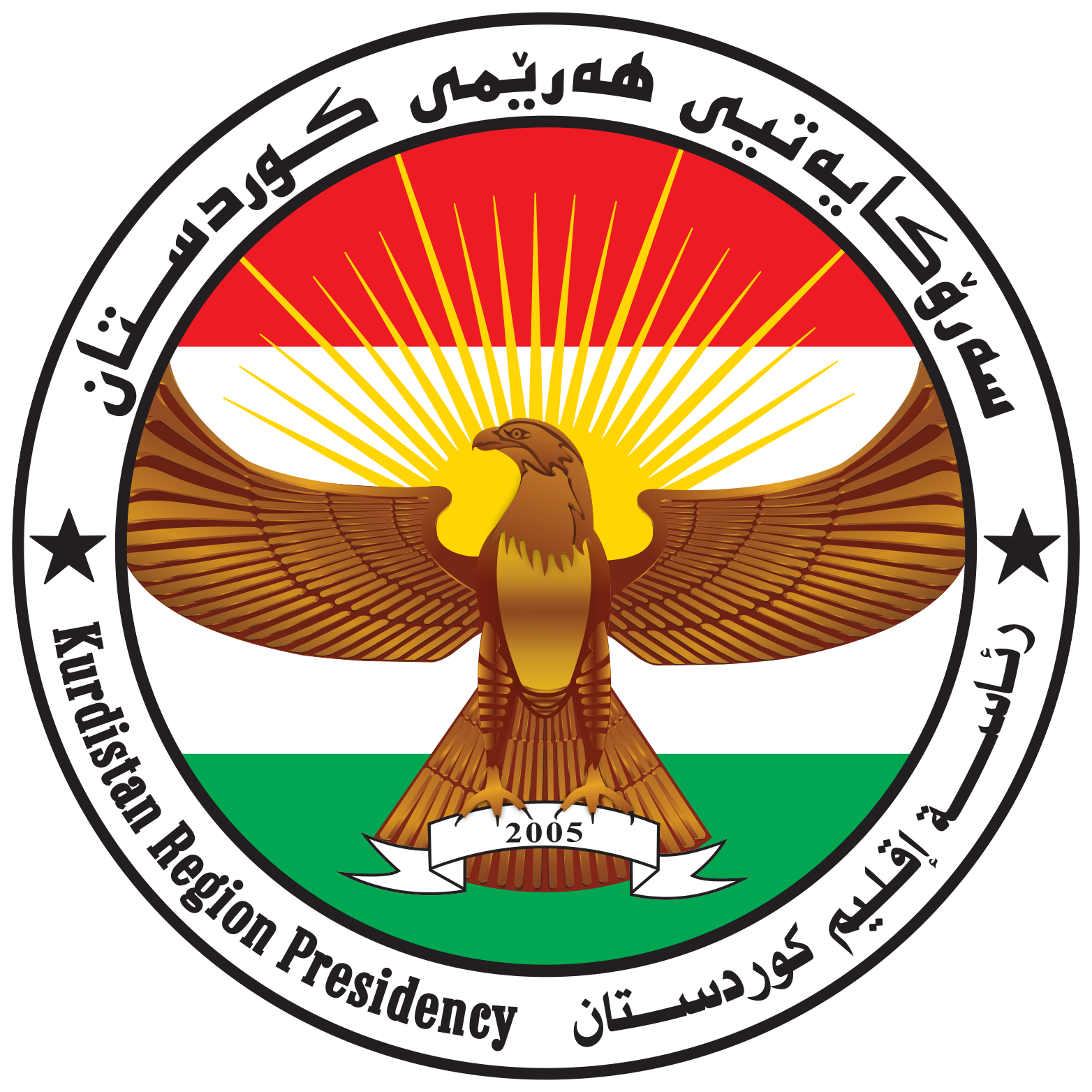

 پەرلەمانی کوردستان
پەرلەمانی کوردستان
